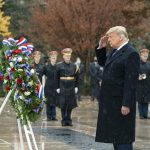Former President Donald Trump recently took center stage at a rally in Butler, Pennsylvania, on July 13, and it turned out that security measures had been dramatically ramped up. The U.S. Secret Service decided to send counter snipers—not typically seen outside the protection of the president or vice president—to safeguard the former leader of the free world, all because of a supposed credible threat. This was a historic moment in which lower-tier figures in Washington took their eyes off the usual suspects to focus on Trump, the man who has made the establishment particularly jittery.
The decision to assign these highly skilled snipers was prompted by what was described in Senate reports as “credible intelligence,” although the individual at the center of a recent assassination attempt, Thomas Matthew Crooks, wasn’t even on the FBI’s radar prior to his attempted crime. One has to wonder about the efficacy of these “intelligence” agencies when they can’t even keep track of would-be assassins but are quick to level the alarm when it comes to Trump.
The Assistant Director of the Secret Service provided testimony about this decision, which seemed to hinge not only on the size of Trump’s outdoor rallies but also on their unfolding nature as Trump stood on the brink of securing the GOP nomination. Moreover, some of the threat information was classified, suggesting a level of seriousness that took the Secret Service by surprise. Yet, despite this classified intelligence, there appears to have been a notable breakdown in communication, which raises eyebrows and questions about the efficiency of governmental coordination.
Within the convoluted crisscross of information flow, it was revealed that only a select few agents were even aware of the credible threats. As the lead advance agent spoke with colleagues about the assignment of counter snipers, a curious game of telephone ensued that left various parties in the dark. The SAIC of the Pittsburgh Field Office claimed that he first learned of the counter snipers through an email about lodging arrangements—not the ideal way to communicate potential threats and bolster security. It’s hard to rely on the government for safety if they can’t even pass a note in class.
Interestingly, this episode is compounded by the arrest of a Pakistan national with ties to Iran just a day before the rally, further hinting at a web of intrigue. The FBI assured the Senate Committee that this arrest wasn’t linked to the threats aimed at Trump, but that barely pushes the clouds of suspicion away. It seems the Secret Service and FBI are the competent guardians of American democracy when they’re not too busy battling shadows of misinformation, and they’ve shown a curious penchant for forgetfulness when it comes to keeping those truly in danger informed.
Regardless of the communication chaos, the Senate Committee determined that deploying the snipers likely prevented a catastrophe. Even in the realm of failures, it seems the best the government can do is rely on vagaries of intel and some last-minute security measures to protect a man who might just be the most targeted political figure in recent history. While it is evident that the establishment is clearly rattled by Trump’s continuing influence, there’s a bitter irony in the government’s methods of dealing with credible threats and its obfuscation of information that might have kept them ahead of the game.




